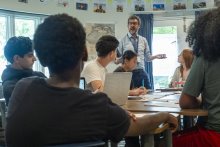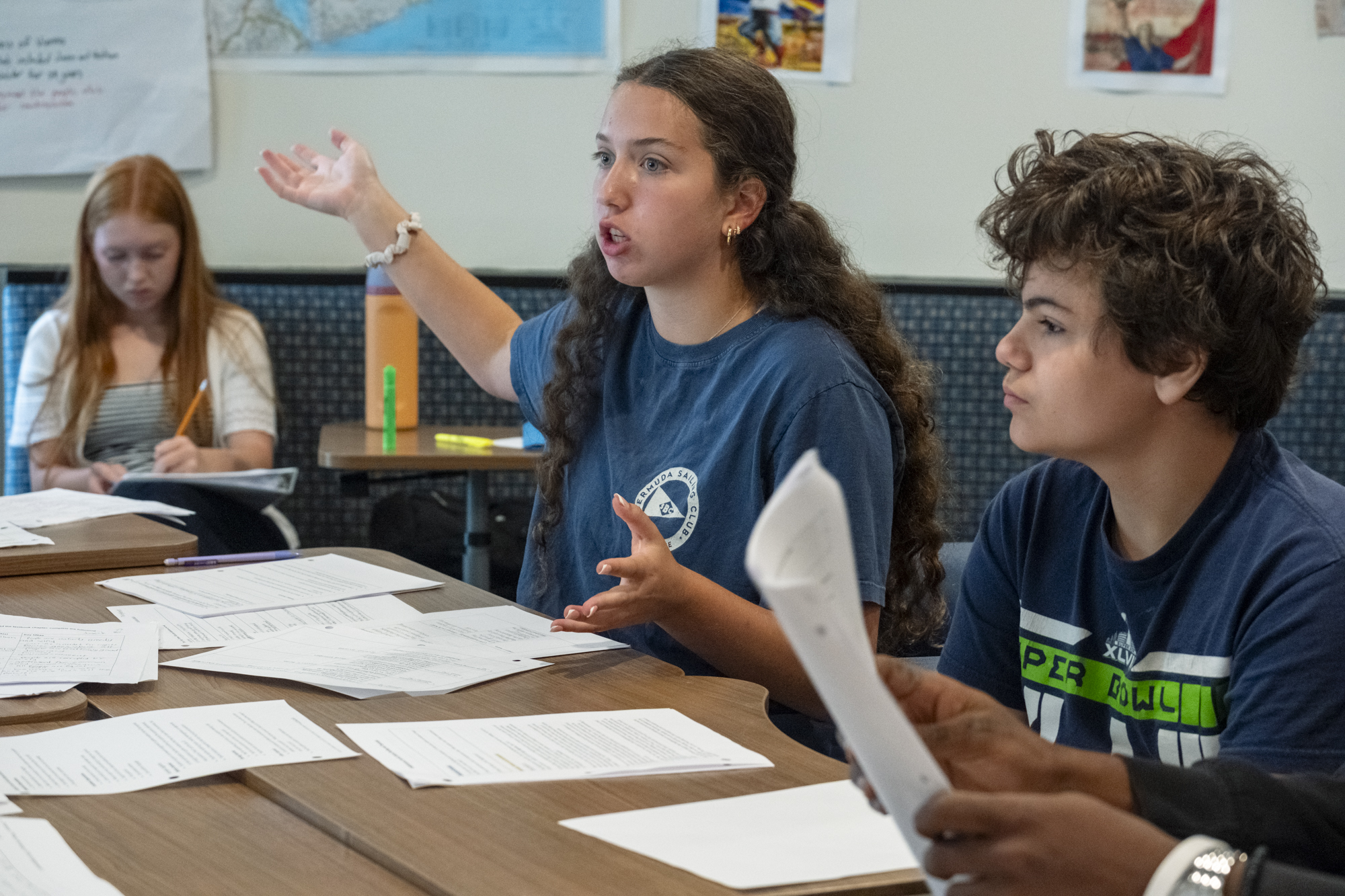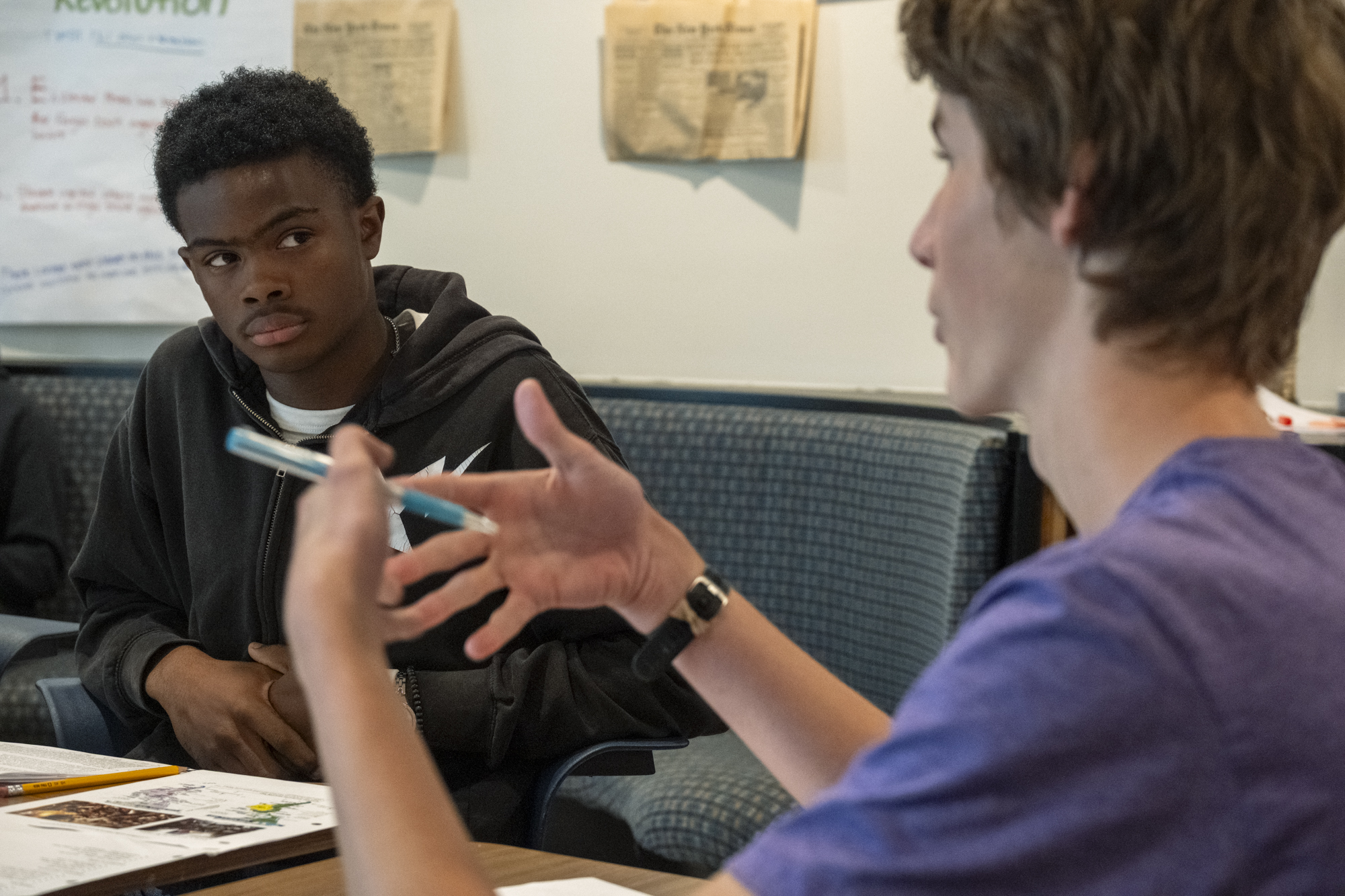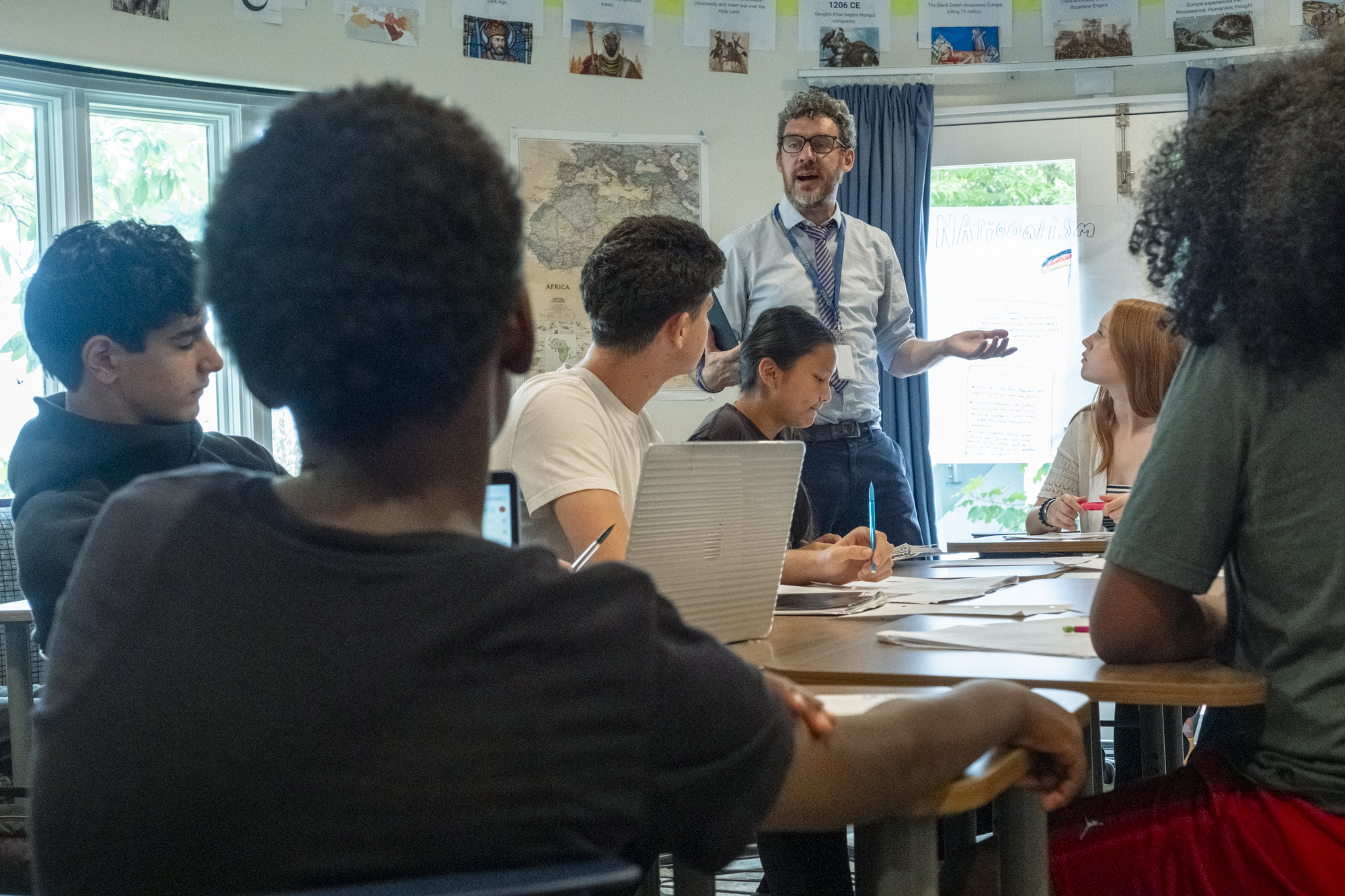
Field tenth graders in history class are learning a different skill entirely: how to disagree respectfully, think critically, and seek truth rather than victory.
Students in Steve Brennan’s History class engaged in their first Socratic seminar, a structured discussion format that asks them to set aside the impulse to "win" an argument and instead pursue something more valuable: genuine understanding through civil discourse.

After four weeks studying the Enlightenment, students arrived prepared to tackle three provocative questions: What is the true legacy of the Enlightenment? Was the French Revolution a continuation of Enlightenment ideals or a break from them? And, were Enlightenment thinkers hypocrites, given the shortcomings of their ideas?
To inform their thinking, students analyzed two articles that contrasted in perspective: one from New York Times columnist Jamelle Bouie, who critiques the Enlightenment’s failures, and another from Harvard professor Steven Pinker, who celebrates it as transformative progress. Armed with annotations, historical evidence, and weeks of deep content knowledge, students took their seats around the table.
“The idea is that they don’t have to memorize anything; they’ve got everything they need in front of them,” Steve explains. “We want them to read critically, detect bias, assess the strength of evidence, and understand that everything has a perspective.”
Socratic seminars take on the form of a fishbowl discussion, half the class sits in the center engaging in dialogue, while the other half observes from the outside. The observers will offer gentle feedback on interesting points made, use of textual evidence, and areas for growth. After twenty minutes, the groups switch, allowing each student to engage in dialogue and observation.
This activity is an exercise in vulnerability and intellectual courage, speaking your ideas aloud while your peers listen, not to defeat you, but to understand your reasoning.
For students, the challenge isn’t just academic. “There may be students who have a really hard time with this because they are focused on winning,” Steve acknowledges. But that’s precisely the point. In a culture saturated with adversarial media and polarized discourse, the classroom becomes a rare space where curiosity is valued over competition.

Throughout the unit, students have wrestled with uncomfortable historical realities. They’ve examined how the Renaissance, often taught as a golden age of European creativity, was also an era of religious intolerance, antisemitism, and the beginning of the Atlantic slave trade. They’ve watched as Enlightenment ideals of liberty devolved into the Reign of Terror, where revolutionary leaders “became everything that they despised.”
“It’s interesting to see kids put flesh on bone for these historical figures,” Steve reflects. “To have an opinion on their character arc and see it all fall to pieces.”
Students have tracked how Robespierre, Marat, and Danton, once champions of freedom, became agents of tyranny. They’ve considered why Louis XVI was unable to accept that he was no longer an absolute monarch. And they’ve begun asking why the American Revolution, happening nearly simultaneously, took such a different trajectory.
These aren’t easy conversations. They require students to challenge dominant narratives, sit with ambiguity, and resist the urge to land on simple answers. But in doing so, they're developing skills that extend far beyond the history classroom.
“For them to be able to approach reading from supposed authorities with a critical lens will ultimately serve them better as citizens of the mid-21st century,” Steve notes. “We’re creating a climate of curiosity, not confrontation.”
As students prepare for future discussions, eventually generating their own questions rather than responding to prompts, they’re discovering what it means to seek truth collaboratively. They’re learning that intellectual strength isn’t about overpowering opponents, but about building understanding together.
Field tenth graders are proving that confrontation isn’t the only outcome from discourse. Authentic dialogue and change embrace rigorous thinking paired with genuine respect, critical analysis rooted in empathy, and the courage to change one’s mind when the evidence calls for it.
